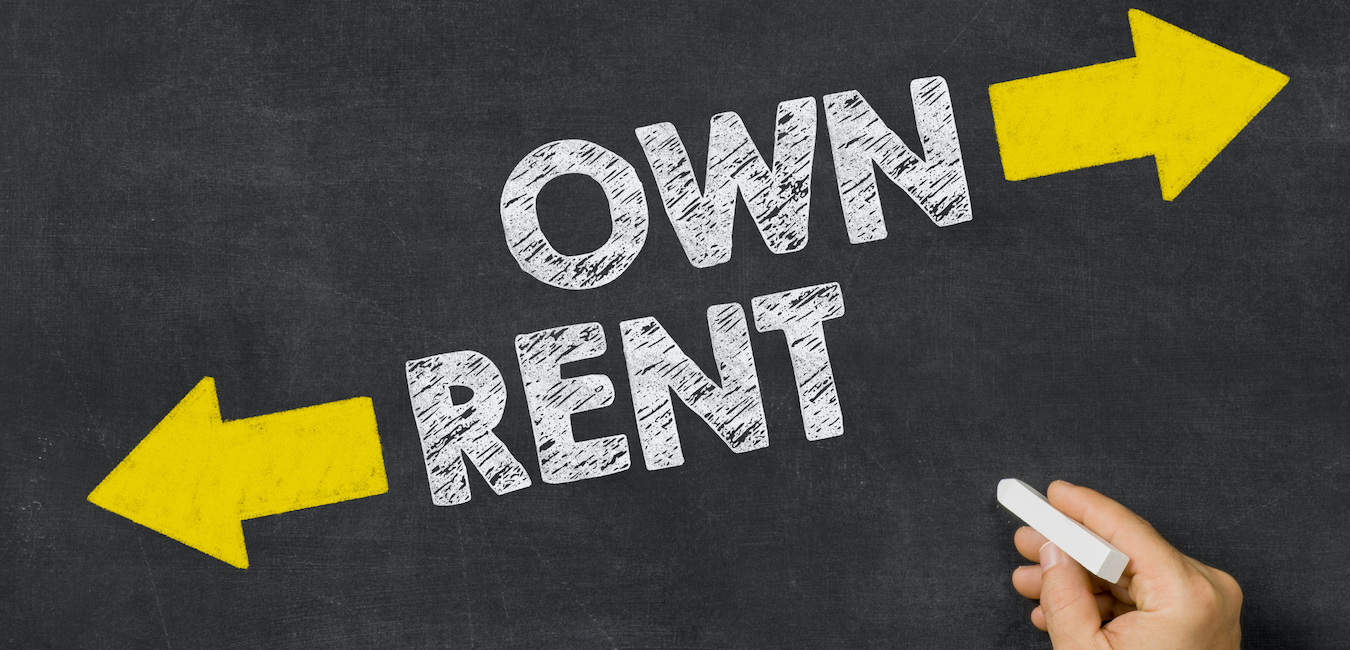Buying a House During a Recession

Buying a house is a major decision, and it often requires long-term planning. From determining how much house you can afford to saving up for a down payment, the process can take months or even years.
But buying a house becomes even more complicated during a recession. With home prices fluctuating, it can be difficult to tell just how much you will need to have saved for a down payment, closing costs, and other expenses. A recession can also have implications on your job stability and income and might make you question whether you should purchase a house.
You’ll want to carefully consider the pros and cons of buying a home during a recession. If you decide to move forward, there are several tips that can help to make your homebuying experience a success.
>> Related Read – Is It Better to Rent or Buy Right Now?
What Is a Recession?
A recession is a decline in economic activity that lasts for a significant period of time. Recessions can last for months or years and are characterized by increased unemployment levels, decreased retail sales, and negative gross domestic product (GDP) levels.
Recessions occur as a natural part of an economy’s growth cycle. They can be caused by sudden economic shocks, like the COVID-19 outbreak, excessive debt, too much inflation, too much deflation, technological change, and more.
2008 Recession
The 2008 Recession, or the Great Recession, was partially caused by a housing market bubble. During the recession, home prices fell, and homebuyers who had adjustable-rate mortgages faced rapidly climbing interest rates and mortgage payments. Many people couldn’t pay their mortgages and went into foreclosure.
>> Related Read – Ethical Banking: What It Is and Why It’s Important
2020 Recession
The 2020 Recession was largely caused by the COVID-19 pandemic. As businesses and schools had to close and the numbers of healthy workers were limited, employers had to pay more for labor. Unemployment rates surged, retail sales, particularly for clothing stores, plummeted, and the stock market experienced significant fluctuations.
Today
While the National Bureau of Economic Research hasn’t yet declared that we are in a recession, we are experiencing some classic economic characteristics of a recession. Inflation is high, and we’re still feeling the effects of the pandemic. While retail sales have improved in comparison to 2020, they are still low, and both the economy and the housing market face some atypical circumstances.
>> Related Read – Housing Market Predictions for 2023 + The Next 5 Years
Should You Buy a House During a Recession?
The thought of buying a home during a recession might seem like a bad idea, but don’t make your decision just yet. While there are cons to buying a house during a recession, there are also advantages, and you just might be able to get a great deal on a home.
Pros of Buying a House During a Recession
- Lower home prices: A recession can impact income. Some people may lose their jobs, and a fluctuating stock market can mean that others may see their investments lose value. As a result, fewer people may have the disposable income needed to buy a home, leading to less demand for homes for sale. In turn, home prices will start to fall.
- Lower mortgage rates: Because people start to spend less money during a recession, the Federal Reserve takes steps to encourage them to make purchases. One of those steps is to lower mortgage rates. If you’re considering buying a home during a recession, you may be able to get a lower rate than what’s normally available.
- Fewer bidding wars: With less demand for homes, there are fewer bidding wars, so home prices remain lower. Adam Chaudhry, a Real Estate Specialist with Berkshire Hathaway HomeServices Chicago, explains that the number of offers sellers receive is already decreasing.
“You’re not getting the 30 offers—maybe three offers now or five offers, and you don’t have to go over the asking price,” says Chaudhry. “And it’s kind of surprising for me because [the real estate market is] supposed to be super hot, and last year at the same time you couldn’t even get a contract. It would be like 30 offers!”
>> Related Read – How to Find Houses Before They Hit the Market
Cons of Buying a Home During a Recession
- Fewer homes for sale: Since home prices fall and there is less demand for homes during a recession, some sellers will take their homes off the market entirely and will wait out the recession before deciding to sell. As a result, there is less inventory to choose from, so you may need to be patient until you find the right home.
- More stringent mortgage requirements: While mortgage rates may be falling, it can be more difficult to get a mortgage during a recession. Some home financing companies will make their criteria more stringent, preferring to avoid offering mortgages until the rates increase again.
- Economic instability: Job loss is common in a recession, and having plenty of cash savings can help you to get through this period of economic instability. It’s important to carefully consider whether you can afford to invest in a home during this time.
>> Related Read – Non-Bank Mortgage Financiers & Servicers: What to Know
4 Tips for Buying a House in a Recession
Careful planning is an important element of buying a home, and that’s still true if you buy a house in a recession. The following tips can help to ensure that you’re ready to buy when that perfect house comes along.
1. Evaluate Your Finances Carefully
Be sure that you’re financially prepared to buy a house. That starts with determining how much you have—and how much you need to save—for a down payment.
While you could put down as little as 3% on a home, real estate agent Waqas Ellahi recommends that first-time homebuyers save as much as possible.
“Definitely save as much as you can,” Ellahi says. “That would be the number one tip because it’s not as simple as saving 5%. You want to save, if you can, 8, 9, 10%, or even more because not only does that give you more equity in the house, but it also makes your payment lower. Some people think they’ve saved 5% and that’s it they’re done. But you’ve got to save for closing costs as well.”
>> Related Read – What Not to Do Before & When Buying a House
2. Get Pre-Qualified or Pre-Approved
Getting pre-qualified or pre-approved can help you to better determine your homebuying budget. During the pre-qualification process, you will self-report some financial information to a financier, and they will give you an estimate of how much you may be qualified to borrow. Getting pre-approved is a more thorough process that involves a credit check. A pre-approval shows that you’re serious about buying a house, and it can make your offer more compelling to a seller.
>> Related Read – How Long Does It Take to Get a Pre-Approval Letter?
3. Set a Realistic Budget
Just because you’re pre-approved for a certain mortgage amount doesn’t mean that you can comfortably afford to make monthly payments on that mortgage. Take the time to create a budget that includes your current living expenses. The budget will highlight how much money is left at the end of the month, and you can use that information to determine how much you can comfortably pay for your mortgage and related expenses like insurance, taxes, and utilities.
>> Related Read – Renting vs. Buying a House: Advantages & Disadvantages
4. Choose the Right Real Estate Agent
Your real estate agent will help you through the entire process of buying a home, from scheduling showings and alerting you to open houses to negotiating with the seller. A skilled and knowledgeable real estate agent can help to connect you to other essential professionals, like home inspectors and contractors. A real estate agent can also provide you with information on local areas and will have information about the newest listings available that might suit your needs.
Finding the right real estate agent can help your home-buying process to go smoothly. Guidance Residential can help to connect you to pre-screened real estate agents who provide outstanding service and expert advice.
>> Related Read – Recruiting a Real Estate Agent? 5 Questions to Ask
Solved: Is It Good to Buy a House During a Recession?
While buying a house during a recession might sound overwhelming, there are some definite benefits, like being able to take advantage of lower prices and home financing rates. However, it’s important to consider your individual situation, including your finances and your job security when deciding if now is the right time to buy a home.
If you’re ready to take the next step in your home-buying journey, get pre-qualified online in fewer than 10 minutes with Guidance Residential today.




